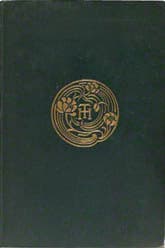Jude the Obscure
Critique • Quotes
 First edition, 1886
First edition, 1886First publication
1896
Literary form
Novel
Genres
Literary
Writing language
English
Author's country
England
Length
Approx. 154,000 words
Honest moral ambiguity
Jude the Obscure is the novel whose reception, coming five years after the similar scandal of Tess of the D'Urbervilles, is famous for leading Hardy to quit writing novels.
The book was widely denounced as "Jude the Obscene", although sexuality is scarcely mentioned, let alone depicted in the novel. What was obscene to Hardy's critics was the perceived attack on the institution of marriage.
However, even in its day others apparently read Jude as a moral lesson showing what fate befalls those who flout convention in the manner of the unmarried and child-begetting Jude and Sue.
Or as a morality tale showing the evils of social pressure brought to bear upon such lovers, leading to tragic results. The role of women in marriage is especially at issue—with several interpretations possible.
Hardy in Jude is certainly on the progressive side, fostering sympathy for the couple, arguing their side, and bitterly exposing the supposed Christians who shunned them, as well as the more educated class who could not accept that women were able to determine their own lives.
A will of her own
Sue is an early hero of women's liberation. Sure, she is is erratic, unable to make up her mind at times, acting more on impulse than on intellectual conviction. But this just shows she is a flesh-and-blood character, not merely a symbol for a cause. And with this greater dimension she better presents the difficulties facing any woman with a will of her own at that time.
Her eventual surrender is more troublesome, but again this is realistic, similar to the capitulation of Kate in Shakespeare's The Taming of the Shrew—we know the great pressure that had to be brought to bear to make either of these women give in. In Sue's case it was the death of her children, caused indirectly by social ostracism, that finally broke her will.
But the novel is called Jude the Obscure, not Sue the Dauntless. The character of the central figure brings more ambiguity. Jude has no wish to flout convention—in fact, his greatest ambition is to join the intellectual and ecclesiastical establishment. It is his good nature, his "doing right" by his wife Arabella and his self-effacing love for his cousin Sue that lead him to become an outcast. He comes to accept and even champion his lover's cause, but in doing so he dooms himself to obscurity and misery.
So Jude is never presented as a great, spotless hero, but as an ordinary man faced with situations that he does not always handle well. One can read many morals into his story. It must have been very difficult for Hardy to write such an objective story while offering his own unpopular, advanced views.
I wonder sometimes if this strain might have affected Hardy's decision to leave prose writing,as much as did the negative public reaction to the fruits of his labour.
Little adults
One short postscript on a different point, which may be unimportant:
Hardy like many great writers of his time has difficulty with children. I never once believe Jude Jr. is a real child. He resembles the children in those old paintings that make them look like little adults. The point is made that the boy is very old for his age and he is nicknamed Little Father Time, but this seems to be a cover-up for the author's inability to create an actual young child. It also places the boy in the plot merely to perform the role of Fate. The other children do not exist at all for the reader except to fulfill their functions of dying at crucial points.
The only false note in an otherwise remarkably honest novel.
— Eric
Critique • Quotes

